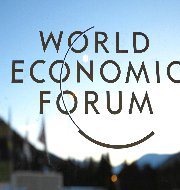Global Risks Report 2024
The World Economic Forum (WEF) has warned that artificial intelligence (AI) driven misinformation and disinformation will pose great risks globally in 2023 and 2024. The warning comes in the WEF’s Global Risks Report 2024 released ahead of its annual meeting in Davos next week.
Key Highlights from the WEF Report
- Misinformation and disinformation are the biggest short-term risks highlighted in the report. Extreme weather events and critical changes to Earth’s systems like biodiversity loss are noted as the greatest long-term concerns.
- Cost-of-living crisis and the interlinked risks of AI-enabled misinformation/disinformation and societal polarization dominate the global risks outlook for 2024.
- With several live conflicts underway, underlying geopolitical tensions and weakening societal resilience risk creating conflict contagion, the report warns.
The survey for the report covered over 1400 global risk experts, industry heads and policymakers.
AI’s Misinformation Threatens Elections
The report notes that misinformation and disinformation spread by domestic and foreign actors will widen societal and political divides. This is especially concerning given major national elections lined up in 2023-24.
Countries like the US, India, UK, Indonesia and Mexico will see over 3 billion people voting in 2023-24. In this backdrop, the widespread use of misinformation and disinformation tools may undermine the legitimacy of newly elected governments, the WEF cautions.
Misinformation refers to incorrect information while disinformation is false information spread to deceive people. The report warns that advanced AI can make it challenging to spot fake content.
Mitigating the Risks of Misinformation
To mitigate the risks of AI-enabled misinformation campaigns, the report suggests:
- Increasing societal resilience through renewed focus on critical thinking, media literacy, and civic responsibility education
- Governments collaborating with tech firms to promote information integrity while respecting digital rights
- Fostering international cooperation for early identification and containment of misinformation campaigns
Cost-of-Living Crisis Causing Instability
The report highlights the persisting cost-of-living crisis as a major near-term concern. Rising prices, debt distress, and disparate social impact of the crisis risk fuelling political instability and unrest.
Policymakers need to balance measures to control inflation with targeted relief for vulnerable groups to maintain social cohesion, as per the WEF.
Climate Change and Biodiversity Loss Long-term Threats
For the long run, the existential threats from climate change and biodiversity loss dominate the global risks outlook. The world is already witnessing more frequent and intense climate shocks, as noted in the report.
Urgent climate mitigation and adaptation efforts are essential to prevent catastrophic outcomes, the WEF stresses. Similarly, reversing nature loss through conservation and restoration initiatives is vital for our collective future.
The upcoming Davos dialogue will likely focus extensively on these long-term environmental risks. The talks this year are also expected to be shaped by ongoing military conflicts and geopolitical tensions.
Month: Current Affairs - January, 2024
Category: Reports & Indexes Current Affairs







